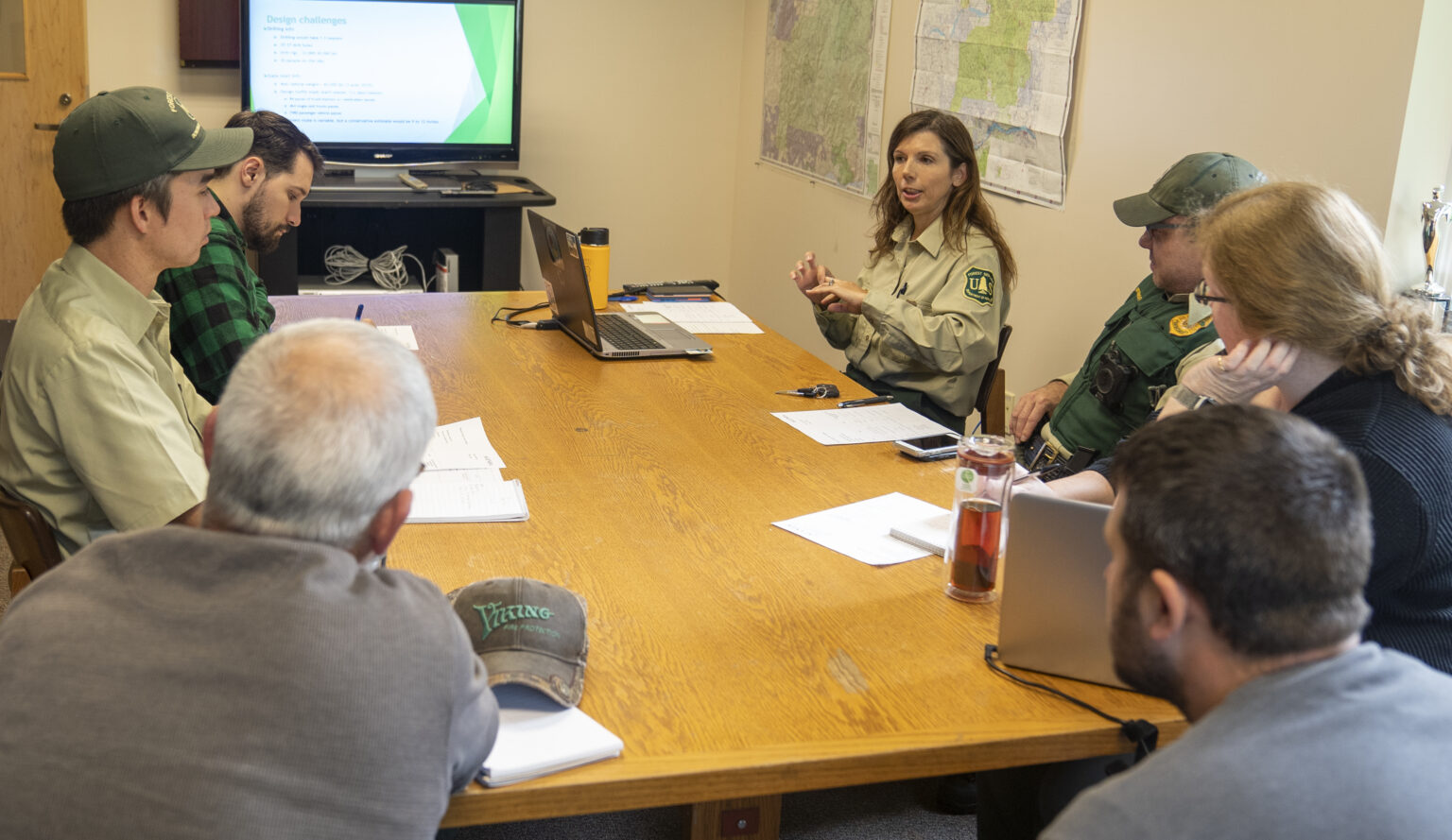Capitol Chatter: Lawmakers still mum on special session
Published 5:30 pm Thursday, September 16, 2021

- Capital Chatter square logo
Pssst. … Oregon legislators return to Salem and the State Capitol on Monday. The public is allowed in. But details are sketchy.
The Legislature will hold a special session on redistricting. That is the every-10-years redrawing of state senator, state representative and congressional districts to equalize population numbers based on the latest Census
Trending
It’s all about gaining partisan advantage, although rarely does a politician admit to doing so.
Lawmakers hyped the importance of public involvement in redistricting. At least a couple thousand Oregonians did so. Yet, as my Oregon Capital Insider colleague Gary Warner reported this week, the ensuing response from legislative leaders has been … silence.
And the logistics for the legislative session? Odd-ish.
Meanwhile, Marion County on some days leads the state in new COVID-19 infections.
Due to the ongoing, long-planned construction at the Capitol, most legislators won’t have access to their offices. They may hang out in their respective Senate or House chambers or briefly snag one of the temporary offices set up in the Capitol café. They must bring their own food and beverage.
Legislative leaders have gone as far as urging them to plan on leaving the Capitol – returning home if they live close enough, going to a local hotel or working from a remote location – during the time between when the session opens and legislators actually vote.
Trending
Who knows when that will be?
Gov. Kate Brown called the redistricting special session to begin at 8 a.m. Monday. But a governor cannot regulate either the length or the agenda of a special session.
As of late Thursday afternoon, legislative leaders remained mum on key details, including which redistricting proposals will be considered, who will serve on the committee(s) for that work, and even when the committee(s) will meet. Finally, in mid-evening the majority Democrats quietly released the proposed redistricting maps, which they had finalized out of public view.
The public can participate … sort of. Visitors, including lobbyists, no longer are barred from the Capitol, in contrast to the regular legislative session earlier this year. Masked and socially distanced, legislators will meet in person for floor sessions and any committee meetings; however, the public – also required to wear face coverings – must view the proceedings livestreamed on screens at the Capitol or on their own laptops, tablets and phones.
In addition, getting to the Capitol may prove inconvenient. Almost all parking spaces on the building’s south and east sides are filled with construction vehicles and laborers’ individual cars. Due to construction, the main building entrances are closed, but signs point to two public entrances that are wheelchair accessible.
The Capitol re-opened to the public in July. Since then, there have been about 50 to 70 visitors a day, according to Juliene Popinga, the Visitor Services manager.
With legislators’ own parking garage closed, they have been assigned parking in the state employees garage beneath the Capitol Mall. Security cameras have been installed. A security firm has been hired to monitor the garage.
Because of the temporary lack of office space, as well as coronavirus concerns, legislative aides have been asked not to attend the special session in person and instead to continue working remotely.
Meanwhile, Secretary of State Shemia Fagan, getting ready for the likelihood that the special session will fail, announced that 760 Oregonians applied to serve on her advisory People’s Commission on redistricting. Information and applications were available in English, Spanish, Russian, Simplified Chinese and Vietnamese.
“In addition, the Oregon Secretary of State’s Office did significant outreach to culturally specific, regionally diverse, and community-based organizations in an effort to reach Oregon’s diverse communities and families that represent communities throughout the state,” her staff said in a press release.
Fagan’s office website says she “has every confidence that the Oregon Legislature will complete redistricting before their September 27 deadline.” But just in case legislative redistricting falls to the secretary of state – as almost always happens in Oregon – she created the People’s Commission and scheduled five public hearings for Oct. 6-9.
As for drawing the new congressional district boundaries, a panel of judges will take up that task if the Legislature fails.
Meanwhile, not at the Capitol: Lawmakers also are scheduled to gather Wednesday through Friday for informational meetings known as Legislative Days. These committee meetings continue to be conducted virtually using Microsoft Teams.
Legislative committees tend to cram too much onto their agendas and allow too little time for discussion with the experts they’ve invited to testify. During Legislative Days, some committees will focus on one or two key topics; others will go through a series of brief briefings.
Wildfires, the pandemic, rent relief and the Employment Department are major topics. The House COVID-19 response committee will cover several pandemic-related issues.
Cherry-picking through the agendas, I also found these items:
• The Senate and House judiciary committees have scheduled 20 minutes on law enforcement retention and recruitment and 15 minutes on the cost of gun violence.
• The House health care committee will devote 70 minutes to Oregon’s health care workforce crisis.
• The Senate education committee will concentrate on the reopening of K-12 schools, community colleges and public universities.
• The House business committee will spend an hour on establishing state and municipal banks in Oregon.
• The Senate revenue committee’s agenda includes 20 minutes on next year’s income tax kicker.
And, by the way, Legislative Days will be canceled if the special session extends past Tuesday.
Comings and goings: Highly respected Maureen McGee, who started at the Legislative Counsel’s Office in 2013, left this summer to join the Tonkon Torp law firm. McGee ranks among the most influential Capitol insiders whom most Oregonians have never heard of. She most recently served as senior deputy legislative counsel. She helped write legislation on such complex topics as carbon cap and trade.
She said her role at Tonkon Torp will include lobbying, litigation services and legal counsel.
“Serving in Legislative Counsel was a true honor and I will certainly miss being colleagues with the consummate professionals in that office,” she said in an email. “Transitioning into an advocacy role at Tonkon Torp, however, will allow me to continue growing professionally while developing a fresh perspective and to build a successful private practice as part of a highly respected, Oregon-based law firm.”
Staff changes are a constant of Capitol life. Gov. Brown’s legislative director, Elana Pirtle-Guiney, on Thursday told lawmakers she would leave the Governor’s Office on Oct. 15.
“I appreciate your dedication to Oregonians, your professionalism even in the face of disagreement, and in many cases your friendship,” she said in an email to legislators. Pirtle-Guiney joined the governor’s staff in 2015 after nine years with Oregon AFL-CIO.
Oregon State Police Capt. Stephanie Bigman, who most recently was the lieutenant assigned to the Grants Pass Area Command, is succeeding Capt. Tim Fox as the agency’s government and media relations liaison. Fox transferred to the Gaming Division.
“Salem’s success at the Legislature in recent years reflects a concerted effort to rebuild Capitol relationships.”





